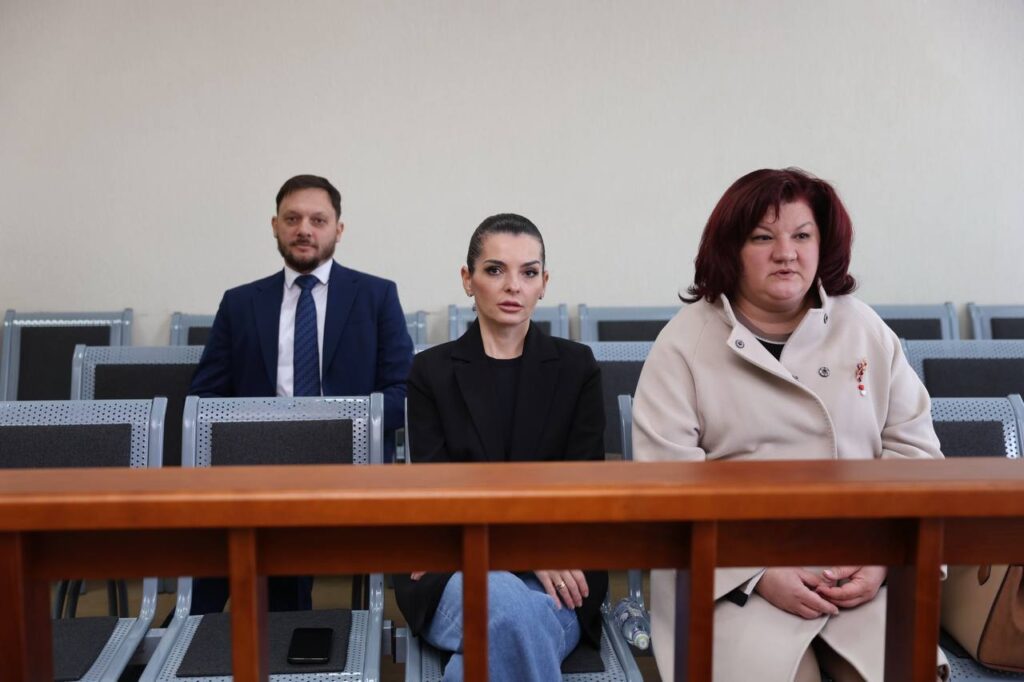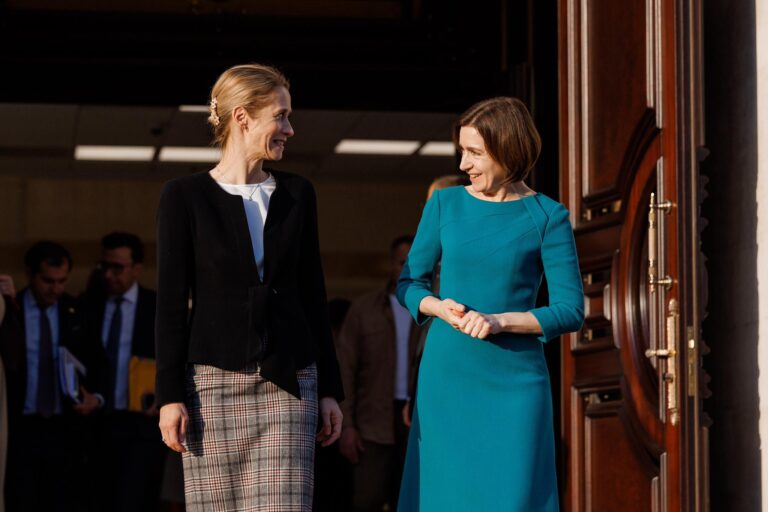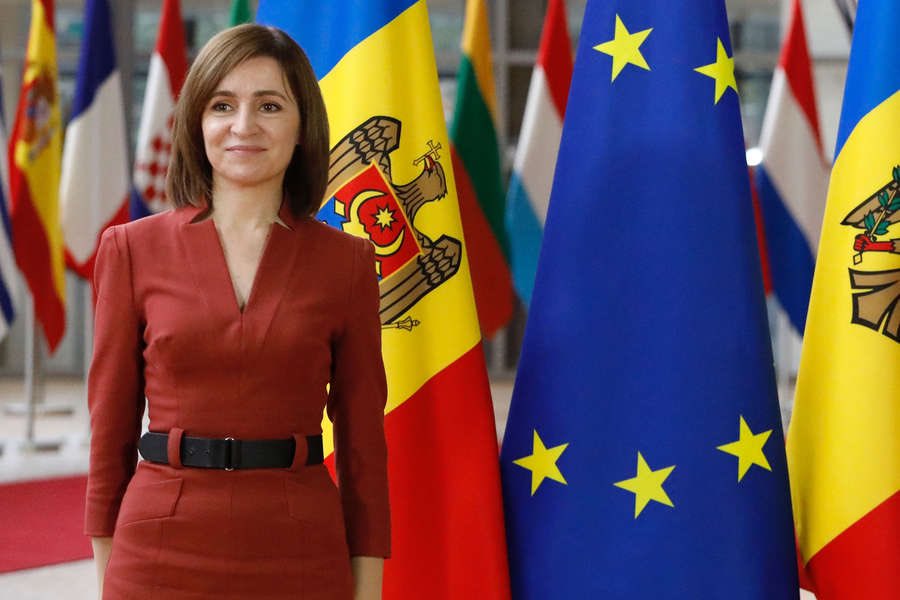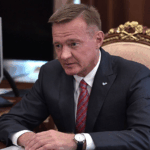Moldova’s 2025 elections are not only a test of democratic resilience but a geopolitical fault line. Russia is positioned to exploit voter fatigue, regional divisions, and political fragmentation. A robust response — combining civic resilience, international support, and proactive risk mitigation — is critical to safeguarding Moldova’s pro-European course.
As Moldova approaches critical elections in 2025, the stakes have never been higher. With President Maia Sandu and her pro-European government committed to democratic reform and EU integration, Moscow is expected to intensify efforts to destabilize the political landscape. Russia views Moldova not only as a former Soviet space slipping from its orbit but also as a vital platform to test hybrid warfare tactics within a European context.
I. Probable Electoral Outcomes
Polls indicate a tight race between the pro-European Party of Action and Solidarity (PAS) led by Maia Sandu and a loosely coordinated bloc of pro-Russian parties, including:
- Bloc of Communists and Socialists (led by former presidents Igor Dodon and Vladimir Voronin),
- Party “ȘOR 2.0” (rebranded elements of Ilan Șor’s banned party),
- “Victory” movement of ex-BAAR deputy Alexandr Nesterovschi
- Gagauz People’s Party led by Evghenia Guțul,
- Smaller populist or pseudo-centrist actors with hidden Russian backing,
While PAS maintains the urban, pro-Western electorate, the countryside and Gagauzia remain fertile ground for pro-Russian narratives.
Projected scenario:
If the elections are fair, PAS has a narrow path to retaining power. However, Russian information warfare and vote-splitting tactics could tilt the balance. A coalition of pro-Russian and populist forces may attempt to create a “government of national salvation” narrative.
Election Scenarios
| Scenario | PAS Share | Pro-Russian Bloc | Outlook |
|---|---|---|---|
| Optimistic – high turnout, strong diaspora | ~35% | ~30% | PAS forms a governing coalition |
| Uncertain – low turnout, split vote | ~28% | ~37% | Fragmented parliament, coalition gridlock |
| Adverse – Kremlin-aligned bloc surges | ~25% | >40% | High risk of “Hung Parliament”, Russian leverage returns |
II. Pro-Russian Forces and Russian Intelligence Involvement
Priority Objectives for Russia:
- Undermine PAS electoral dominance.
- Reinforce regional autonomist sentiments (Gagauzia, Transnistria).
- Promote pro-Russian coalitions (Șor 2.0, PSRM, PCRM, PN).
- Facilitate voter fatigue and low turnout among diaspora.
Russian Intelligence Agencies Involved:
- FSB (Federal Security Service):
- Focused on internal destabilization, supporting separatist elements in Gagauzia and Transnistria.
- Embedded in Russian diplomatic staff in Chisinau and Comrat.
- Oversees financial and organizational support for pro-Russian parties and NGOs.
- SVR (Foreign Intelligence Service):
- Handles long-term political influence operations, including recruitment of Moldovan elites, ex-security officials, and media figures.
- Coordinates with oligarchic networks (e.g., Ilan Șor) based abroad.
- GRU (Military Intelligence):
- Engaged in covert sabotage, logistics, and proxy coordination.
- Involved in cyber operations and possible false-flag actions near borders or infrastructure targets.
III. Scenarios Russia May Use to Destabilize Moldova
1. Separatism Activation (High Probability)
- Russia will likely provoke unrest in Gagauzia and/or Transnistria before or during the elections.
- Through proxies like Evghenia Guțul, Moscow may orchestrate “referenda”, declarations of autonomy, or mass rallies against the central government.
- Gagauzia’s special status makes it a legal gray zone ripe for exploitation.
2. Mass Protests and “Color Revolution in Reverse”
- Russian-backed parties may claim electoral fraud if they lose and mobilize street protests—potentially violent.
- Russia might label PAS’s victory as “Western manipulation,” echoing its tactics in Georgia or Belarus.
3. Cyberattacks and Disinformation
- GRU and FSB units may target electoral infrastructure, leak fake documents, and coordinate deepfake campaigns against PAS.
- Telegram, TikTok, and Russian media outlets will amplify pro-Russian narratives.
4. “Government-in-Exile” Parallel Structures
- Moscow may encourage Gagauz or Șor-affiliated figures to form alternative governance bodies, undermining central legitimacy.
IV. Kremlin’s Command Structure Over Moldova Operations
- Dmitry Kozak, Putin’s former envoy to Moldova and architect of Russian plans there, remains the key political handler.
- Sergei Kiriyenko, First Deputy Head of the Presidential Administration, likely oversees hybrid operations and narratives via media and youth outreach.
- Andrey Turchak, senior United Russia figure, maintains links with Moldovan pro-Russian parties.
- GRU General Andrey Averyanov (Unit 29155) may supervise destabilization ops, particularly involving sabotage or violent provocations.
- The Russian Embassy in Chisinau, notably its political and consular sections, acts as a coordination hub for covert funds and local proxies.
V. Vulnerabilities in Chisinau’s Defense Posture
- Weak Security Vetting – Moldova’s law enforcement and judiciary remain penetrated by Russian sympathizers or compromised officials.
- Media Landscape – While pro-Kremlin TV is formally banned, Russian Telegram and regional media still flood the information space.
- Diaspora Voting – Pro-Russian forces aim to mobilize diaspora in Russia and the Gagauz region through manipulation and financial incentives.
- Limited Cyber Capacity – Moldovan authorities remain ill-equipped to repel Russian cyber intrusions or to identify deepfake threats in real time.
- Fragmented Opposition – Despite reforms, Sandu’s camp is politically isolated and lacks durable alliances outside PAS.
VI. Probability of Separatist Scenarios Before or During Elections
- High in Gagauzia – Due to legal precedent (autonomy statute), Russian leverage, and recent political radicalization.
- Moderate in Transnistria – Less likely to erupt due to economic reliance on Moldovan exports, but Russia may still provoke limited incidents as distraction.
- Emergent in Bălți and Orhei – These cities could become platforms for pseudo-separatist “anti-Chisinau” movements using local corruption networks tied to Șor and ex-Dodon groups.
Moldova’s 2025 elections will be a decisive moment not only for its democratic trajectory but also for broader regional security. Russia is unlikely to respect Moldovan sovereignty, and all signs point to coordinated intelligence-led operations to undermine elections, destabilize the state, and provoke separatism.
Recommendations:
- Strengthen domestic counterintelligence, particularly in Gagauzia and at border crossings.
- Enhance cooperation with Western cybersecurity teams, especially from Romania, Ukraine, and the EU.
- Publicly expose Russian interference before it escalates — name agents, detail operations, and sanction Moldovan collaborators.
- Expand civic education on fake news and foreign influence to prepare the population.
EU and U.S. must provide immediate election monitoring teams, including digital infrastructure observers.
MAS Survey (June 28, 2025):
- PAS – 31.5%
- PSRM – 17.4%
- “Șor 2.0” (Victory/CAZ) – 11.7%
- Bloc “Alternativa” – 10.6%
- PN (Renato Usatîi) – 9.4%
- PRIM (Irina Vlah, Gagauzia) – 5.8%
- PCRM (Communists) – 3.7%
- Others (MMM, PDM, small parties) – ~7% combined
IRI Survey (May 2025):
- 49% of Moldovans believe the country is headed in the right direction.
- Negative perceptions of Russia remain dominant among the population.
Bloomberg (June 30, 2025):
- Confirms that PAS is leading, but warns of a likely “hung parliament” scenario with no clear majority.
Sources: PolitPro, Europe Elects, Wikipedia, International Republican Institute
Data Interpretation
- PAS polls at around 30%, notably lower than its 2024 performance, but still leads.
- Combined pro-Russian parties – PSRM, PCRM, Șor 2.0 (Victory), PN, PRIM – may collectively reach 30–35%, significantly influencing the seat distribution.
- The Bloc “Alternativa”, while nominally pro-European, may complicate the picture by splitting votes.
- Voter turnout will be critical. Low participation could weaken PAS, while diaspora votes (80% pro-Sandu in 2024) are crucial to maintaining a pro-European lead.
Forecast Scenarios
| Scenario | PAS | Pro-Russian Parties* | Outlook |
|---|---|---|---|
| Optimistic: High turnout + strong diaspora mobilization | ~35% | ~30% | PAS can form a governing coalition |
| Baseline/Risky: Lower turnout + fragmented vote | ~28% | ~37% | Inconclusive parliament, mandate struggle |
| Pessimistic: United pro-Russian bloc + weak PAS performance | ~25% | >40% | “Hung parliament” + risk of pro-Russian comeback |
Pro-Russian = PSRM + Șor / Victory + PCRM + PN + PRIM
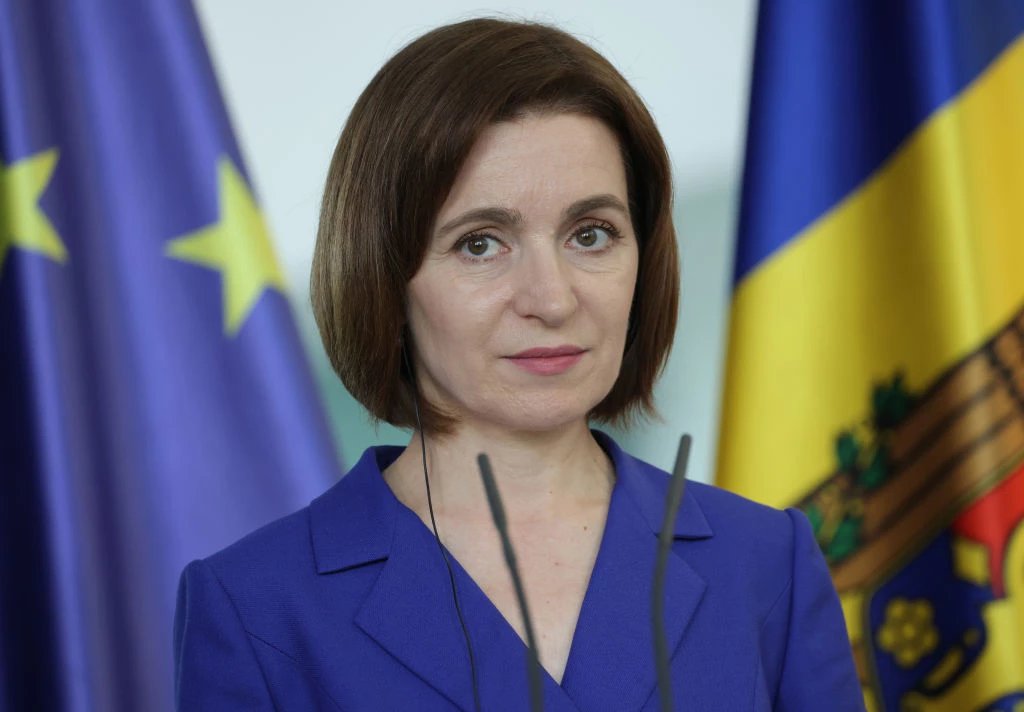
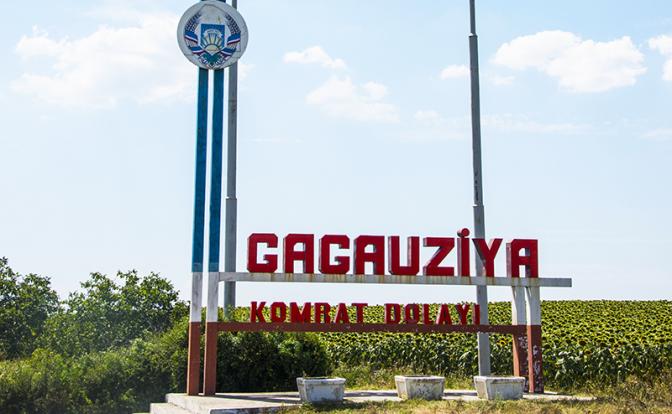
More on this story: Moldova threatened by outside-staged conflict in Gagauzia
